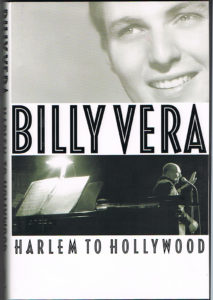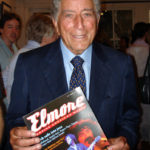 After recording Billy Vera’s song, “I Really Got The Feeling” and taking it the top of the charts, Dolly Parton called and asked to meet him. Who among us would not welcome a call from Dolly? Johnny Carson called Billy his second favorite singer after Tony Bennett. Carson had Billy and The Beaters on the Tonight Show 9 times in the last 6 years he hosted it. Atlantic Records honcho Jerry Wexler once called him “One Of The Best Vault Man In The Biz” in reference to the Grammy-winning work Billy did on chronicling and producing reissue sets of ’40s and ’50s R&B, demon R&R and jazz. Not just the giants like Duke Ellington, Ray Charles or Little Richard, but rare and deserving talents like Jimmy Scott who never got the big break.
After recording Billy Vera’s song, “I Really Got The Feeling” and taking it the top of the charts, Dolly Parton called and asked to meet him. Who among us would not welcome a call from Dolly? Johnny Carson called Billy his second favorite singer after Tony Bennett. Carson had Billy and The Beaters on the Tonight Show 9 times in the last 6 years he hosted it. Atlantic Records honcho Jerry Wexler once called him “One Of The Best Vault Man In The Biz” in reference to the Grammy-winning work Billy did on chronicling and producing reissue sets of ’40s and ’50s R&B, demon R&R and jazz. Not just the giants like Duke Ellington, Ray Charles or Little Richard, but rare and deserving talents like Jimmy Scott who never got the big break.
After reading Harlem To Hollywood, I’d call Billy one of the best pole vault men in the biz. I say that because I only of knew of his talent as a singer and songwriter. With all his many talents, Billy seemed to be able to make recurring Olympian leaps and bounds over the deep dark valleys that appear in anyone’s half a century show biz career. He writes of the highs and lows in great detail, so much at times, you will probably want to read it again, because of all the characters, both household names and regular Jacks and Jills that pass through its pages.
William Patrick McCord was born in 1944, to Bill McCord a lifelong network radio and later TV announcer and Ann Ryan, a stunning looking vocalist who performed with a very young Chet Atkins, The Clooney Sisters, Frankie Laine, Frank Sinatra and later as one of the Ray Charles singers that backed Perry Como on records and TV, When he first started recording, Billy took the name Vera (rhymes with terra) from a girl he knew, so he would not be confused with his father, who by then was on several NBC daytime quiz shows and—confidently thinking ahead—so it would fit easily on a marquee. I first heard of Billy almost 50 years ago from Neal Hollander, our mutual booking agent, who talked incessantly about Vera, and was always suggesting my group do more material like Vera’s. Hollander booked us in a lot of the same mob clubs in the NY metropolitan area back then. Sonny Styles, the first white singer to be offered a Motown deal, told me that Billy was the real thing. Styles saw Vera perform at Harlem’s Apollo Theatre, doing five shows a day, seven days a week. Vera was on Atlantic then, both solo and with duo partner Judy Clay. He had chart success both ways too, with “Storybook Children” and “With Pen In Hand”
When his days as an artist on Atlantic faded, he found multiple ways to survive in the music biz, including working the oldies revival circuit as bandleader with both the Shirelles and Ronnie Spector. In the ’70s he went west to LA and I went south to Nashville. In 1986, “At This Moment,” a song he recorded with his group the Beaters, was played on the popular TV show Family Ties. The NBC switchboard lit up like a Madam LaRue pinball machine as an unprecedented amount of viewers wanted to know who was singing that song.
Vera certainly tells what it took and what goes on in a heartfelt and humble style—both the beautiful and the ugly—not only in the record business, but in movies and TV, because he also acted in films like The Adventures of Buckaroo Banzai, The Doors, Blind Date, and on the TV series Beverly Hills 90210, Baywatch and Wiseguy. He has done buckets of voiceover work in LA. As a producer, he made several records with Lou Rawls, including Lou’s final album. As a tunesmith, he has had cuts by Ricky Nelson, Fats Domino, Bonnie Raitt, Etta James, Robert Plant, Tom Jones, Michael Bublé and also penned and performed TV themes for The Empty Nest and The King Of Queens.
I found the most astonishing story in the book not to be about the world of music or show business, but when he tells—quite casually—how he stumbles into hearing from some very believable sources, what was behind the assassination of JFK. You won’t see it coming, but in the context of the life of a Renaissance man like Billy Vera, it falls in naturally and can only be fully appreciated by reading the book.
There is a reflective postscript and a chapter on his song catalog with his commentary about what other artists have done with them. Any fan of the fine print on a record label will want to take the V Train, the one that runs from Harlem to Hollywood.
—Ken Spooner







Be the first to comment!